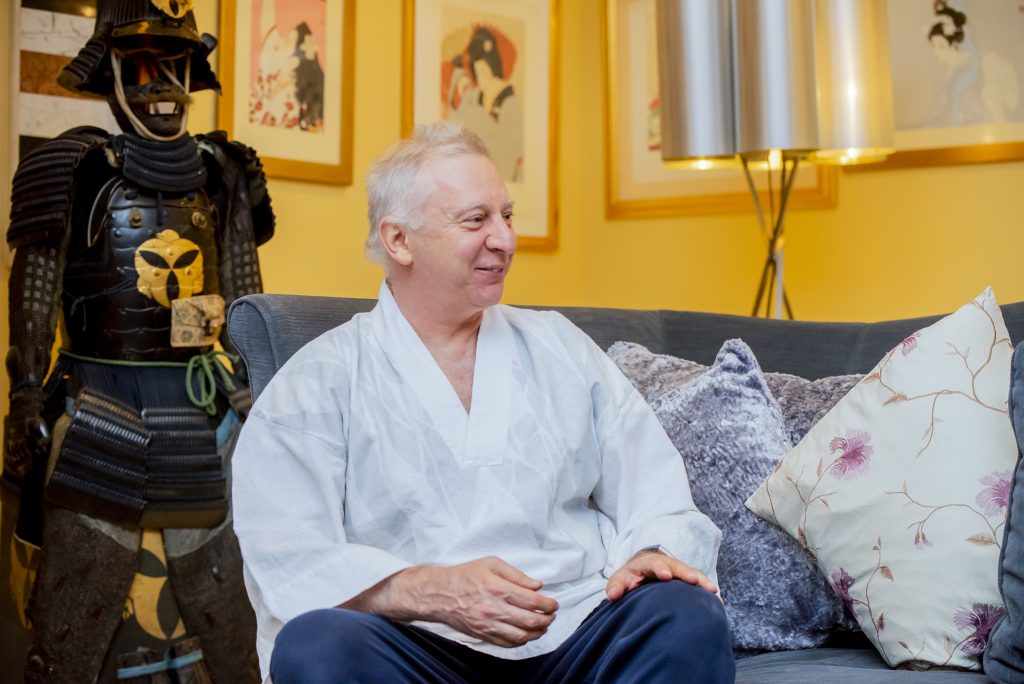
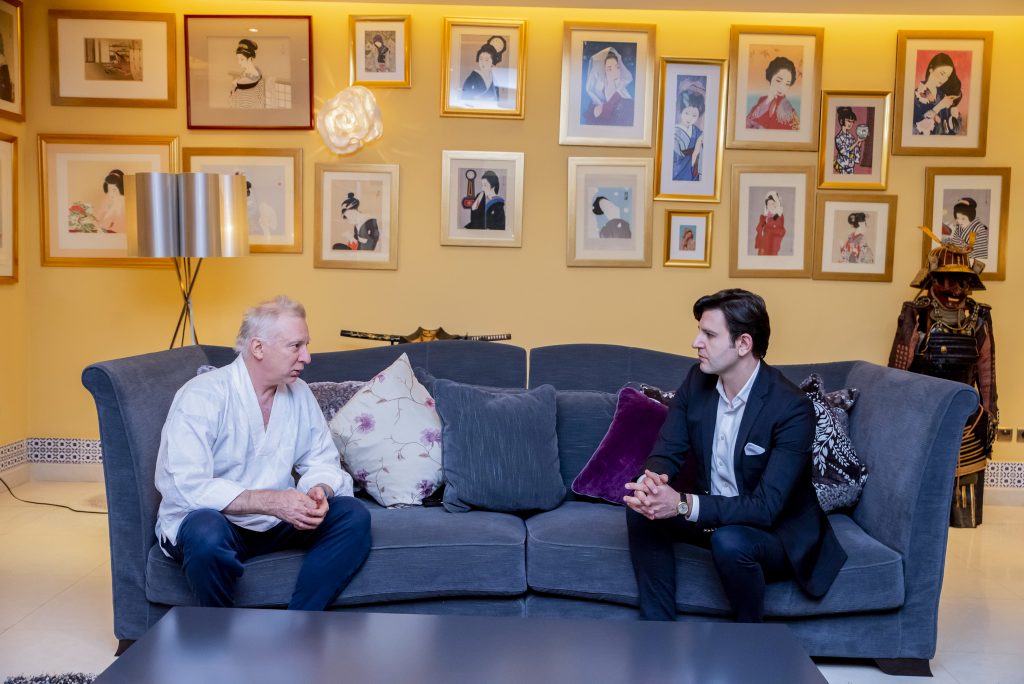
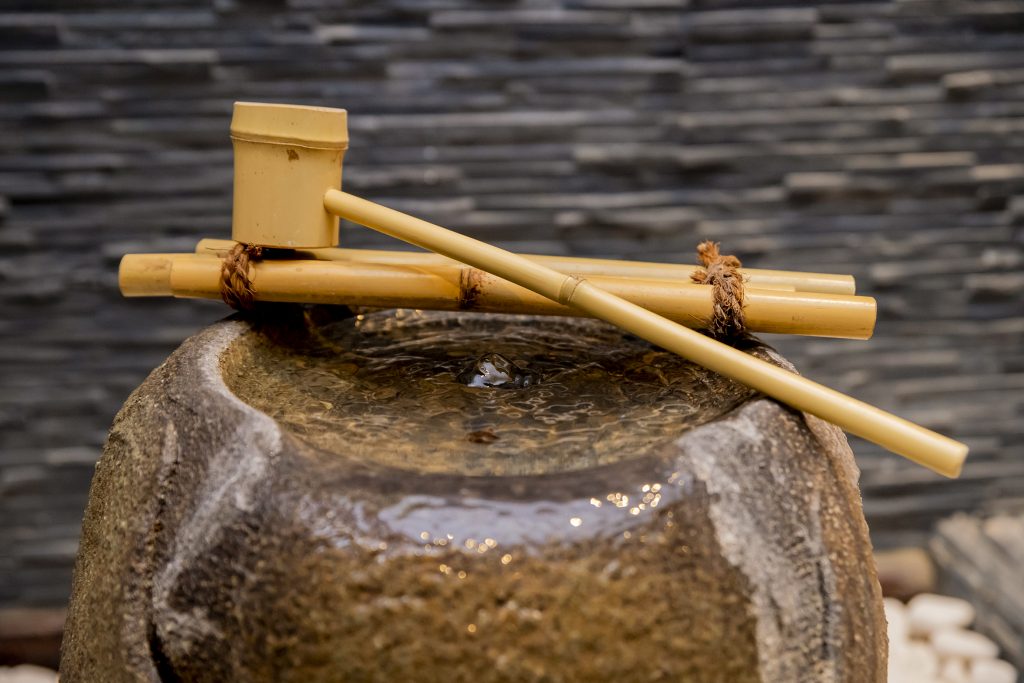
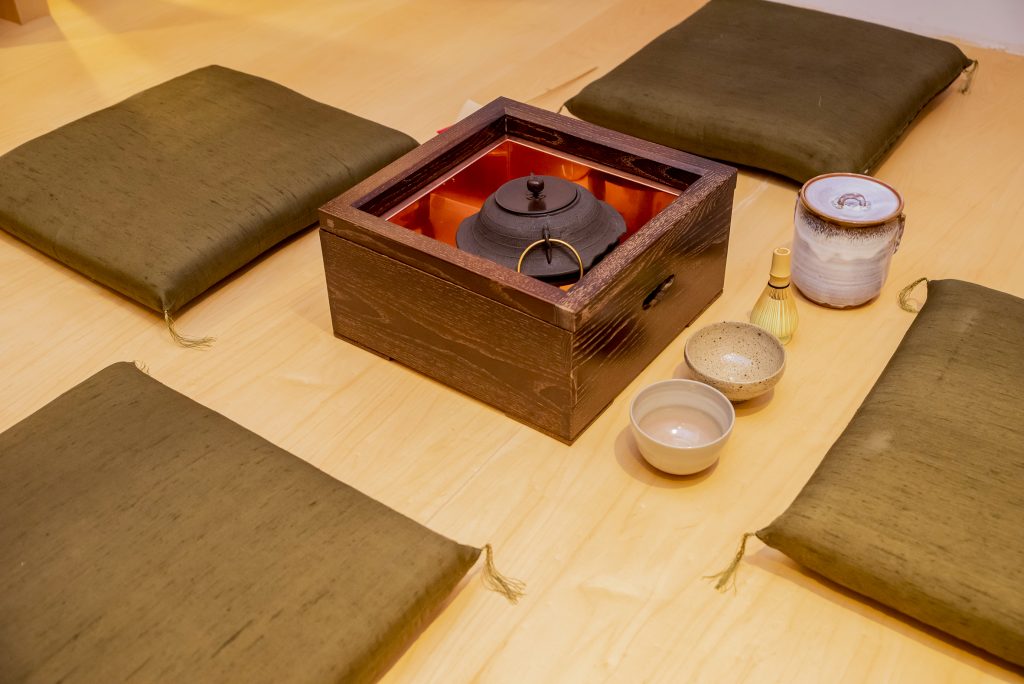
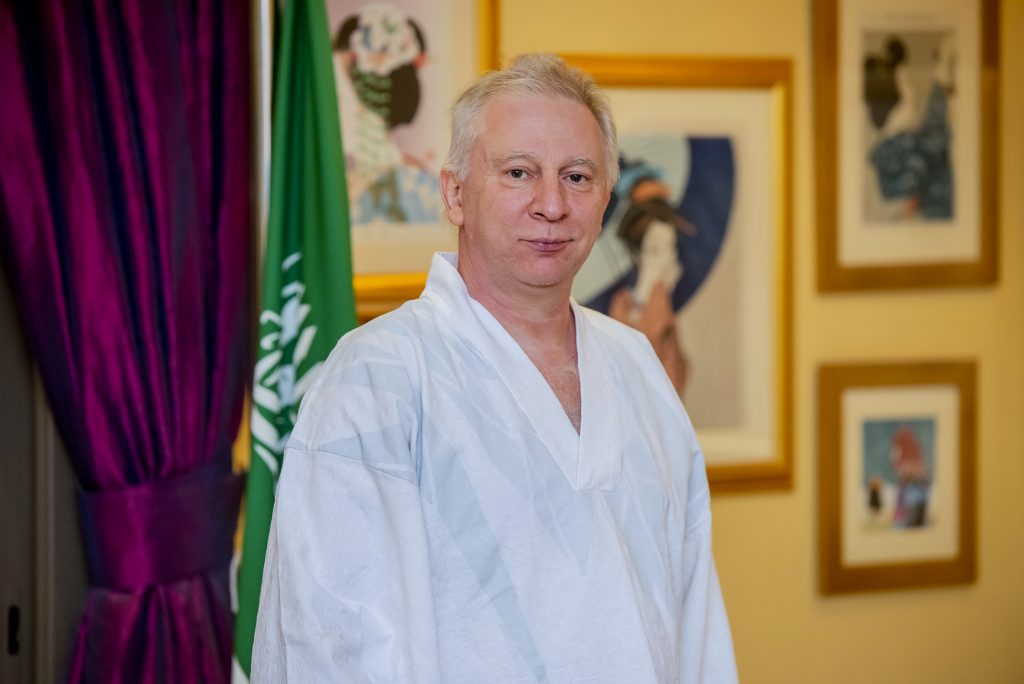





Alexander Woodman
RIYADH: Osool and Bakheet Investment Company founder, Beshr Bakheet–a visionary Saudi businessman– created his fortune in Japan and returned to invest his wealth in Saudi Arabia, connecting the two.
His journey in the field of economics and investment began when he earned his MBA and Engineering Management degree at Keio University in Tokyo. In 1988, Bakheet became a fund manager for Japanese Pension Funds. Over the past thirty-five years of operating in this field, Bakheet has served as a board member for the Tadawul Stock Exchange and AlAhli Takaful. He has held many senior positions in global investment institutions, including Hoare Govett, UBS, and the Credit Suisse Group.
Reflecting on his experience of studying and working in Japan, Bakheet has often said that his work in Japan was one of the unique encounters in life. He is grateful to his Japanese professors and colleagues for opening new horizons and sharing different perspectives. Remarkably, Bakheet donated a scholarship fund to Keio University.
During a visit to Bakheet’s Japanese style house, he uncovered his stance on culture, business, economy, and life.
Although Japan and Saudi Arabia are in different parts of the world, the two countries share respect towards their traditions. Can you please discuss Japanese and Saudi women’s role in the society?
This is a very complicated question, since it is difficult to compare a particular gender in an entire population with that of another. Both countries have large populations, and it is only natural that the role of women differs on an individual level. If I drew parallels between the more general cultural representation of ladies, I would say that nowadays, the female population of both countries is less reserved and relatively more open-minded.
Japan seems to have evolved in a positive direction since last few decades. As busy person, I often do not find the time to keep up-to-date on all of the issues concerning the younger generations. However, from what I can observe, it appears that many people are no longer afraid to show public affection.
Secondly, it was a common tradition during my time to witness what was called an “arranged marriage.” The concept of Miai, also known as Omiai, is based on Japanese tradition, which honors the wisdom of older generations by trusting them with the choice of a marital partner for their children. Miai relationships were quite popular in the ’40s and ’50s. However, currently, the tradition is considered outdated.
The matchmaking process usually consisted of picking two people of the opposite gender who came from the same social, educational, and financial background. The older generation would decide whether the couple would remain together well or not. The youth exchanged pictures and “curriculum vitae” of sorts to become introduced to each other. If the arrangement worked and the couple fell in love, they would get married. If not, the parents would continue looking for a suitable partner for their child. Nevertheless, parents were not the only people in charge of selecting marriage partners. Community members were also hired, Nakodos, in particular, whose profession was matchmaking. This was very similar to Saudi culture.
Lastly, there has been a considerable shift in the professional development of women as employees. It was quite common to hire women as “office flowers,” with the sole purpose of bringing them together with men. The goal was to make them their future wives at the time. There was no professional path for career-driven women to follow. They were called Ochakumi, which literally translated to “tea maker.” Their sole objective was to make tea and find a man to marry. The current situation is, of course, much different. Women are more empowered, and have many more opportunities to pursue careers in their preferred field, as well as hold senior-level positions.
On a personal note, even though these old customs were not as uncommon in my days as they are now, the concept of Omiai would never work for me. This approach to marriage was more suitable for busy people, who did not have the time to mingle outside of their family and work. Today, it appears that the policies are quite different in the workplace. Women are often more independent and dedicated to their jobs, and have a greater chance to meet men at a workplace.
Hard work and commitment are admirable Japanese traits, found in both men and women. Therefore, from my point of view, the Japanese government and economic leaders should trust the working class more than they already do because of their reliability.
Reflecting on some specific experiences during your stay in Japan, what was the most memorable event?
One of my first and most memorable experiences in Japan happened with my Master’s degree professor and, later, my dear friend Professor Ura. On my first day at Keio University, since I did not know any Japanese, I had to do my best to communicate with people who did not speak English. One of those people was professor Ura, who, upon meeting, tried his best to explain something, which took me years to understand. His message was: “This is Japan. Water. People. You, Saudi. Oil! Okay? Go!”
Of course, I could not understand anything he was trying to say; as a result, I let that go. It was only after my graduation that we discussed the incident, and I was finally able to fully comprehend the wisdom of his words. According to him, Japan has only natural resources such as water and people, whereas Saudi Arabia has the financial benefit of both oil and great people. Nevertheless, Japan was developing even more rapidly than the Kingdom at the time, which should serve as a lesson of humility and hard work. That was his message.
As I am reflecting now, that was one of the most unique encounters I had in Japan. I am very grateful to my alma mater and my Japanese professors for discussing life lessons and many professional skills throughout my educational journey. When my business made its profits, I donated it to Keio, even before I bought a house for myself. I can humbly, and yet proudly say that I donate to a scholarship fund at the university used to sponsor students that need financial aid. It is an honor to have the opportunity of influencing someone’s future in such a great way, and provide them with the necessary resources to pursue a successful bright future, hoping that one day they will do the same.
What do you think of Japan back in 1980s and now? In general, do you think country has changed a lot?
During the past few years, it is unfortunate to see the economic decline of the country. At one point, the GDP of Japan almost reached that of the United States, which would have been quite an impressive achievement. Unfortunately, I have a feeling that this goal led to overconfidence, which hindered the continual progress of the country. The rapid economic growth during the 20th century was merely a market bubble. This occurs when the economy describes situations where the growth of certain assets is artificially inflated, and does not reflect the real development rate of the market. As the bubble expands, it fails to keep up with the augmented expectations for the future. Inevitably, the bubble collapses, leaving financial destruction and economic ruin in its wake.
In 1990s, when the Japanese economic bubble blew up, is now referred to as the “lost decade.” The term describes a period of ten years at the end of the millennium, where there was no sizeable development within the country. For a lack of a better word, the situation was quite scary for the locals. As it may be a common knowledge for professionals in the business sphere, an accepted indicator showing economic overheating is the P/E (price-to-earnings) ratio. This simple equation measures the current price of a company’s shares relative to its per-share earnings. When the stock price increases a hundred-fold, while the profitability remains the same, business owners become apprehensive of a successful future. As a businessman, I feel compelled to point out the misfortune of this situation. Japan had an amazing potential to become the world’s largest economic success story, and it did not succeed. It is a lesson that must be studied and learnt from.
Once, I heard an expression that says: “Whenever a nail stands out, one should hammer it back in place.” A simple example of this concept in practice is posted on the website of Japan’s most popular bank. To log in, one needs only a username and a password, without any additional security steps. Online banking systems in most developed countries offer OTPs (one-time passwords) to log in to the system in order to protect personal data.
Japan can significantly benefit if the younger generation is given the space and the resources to express their creativity in various fields of their choice. The social, economic, and even political norms should be challenged, and the best-suited minds should be given the chance to enact the needed change. Perhaps, these ideas sound radical in theory. However, I firmly believe that in practice, they can lead to a gradual paradigm shift for the betterment of the society.
It is a well-known that the Japanese mindset of hospitality centers around care rather than expectation. When you visit a restaurant in Tokyo, what do you look for besides the quality of the food?
As odd as it may sound, food is the last thing one should look for in a Japanese restaurant. I would answer this question with a personal experience. When I was a student in Tokyo, I had an opportunity to work part-time at a sushi shop. This experience taught me a valuable lesson. Any good restaurant should have specific standards, including a personal connection between the chef and his/her staff. Almost every single sushi place in the country has rice, fish, wasabi, or nori. What is more important, and perhaps the most challenging aspect of such a business, is the human relationship – the personal approach towards each guest. I think Japanese restaurant owners are doing a great job by connecting with their guests. Therefore, to answer your question, one should check how connected is the owner of the restaurant to his/her guests.
Is there any restaurant that is in your top choice?
There is a well-known Michelin Guide for Tokyo to find a suitable dining place. Interestingly, there are more Michelin-starred restaurants in Tokyo than there are in Paris. Frankly speaking, one can rarely go wrong when selecting a restaurant from this list, since each offers the highest quality of food and service. I cannot recommend a specific restaurant because the choice depends on one’s taste.
Personally, I like trying new dishes. As a result, I try visiting a different restaurant whenever I go out in Tokyo. My recommendation would be to find a copy of the Michelin Guide online, and pick the restaurant that seems the best. There is no wrong choice.
What is your message to the Japanese youth and those who are interested to visit Saudi Arabia.
For my friends in Japan, my message is to understand the importance of rising above the criticism of others. Never allow anyone to bring your spirit down and make you feel disrespected. Japan’s secret weapon is its innovative youth. While in Saudi Arabia, people should experience more Japanese culture, and be open to travel to Japan.
Alexander Woodman is an author based in the Gulf. His research interest includes global health, international health policy development, transnational and transcultural health politics, ethics as well as diplomacy. [email protected] Instagram @thelandofadat